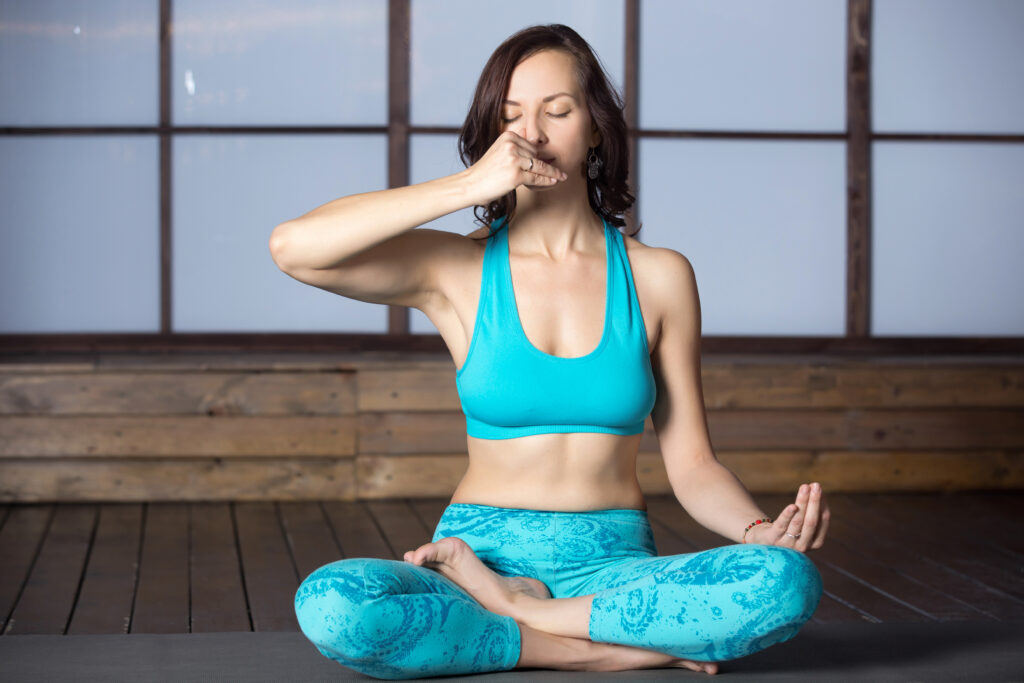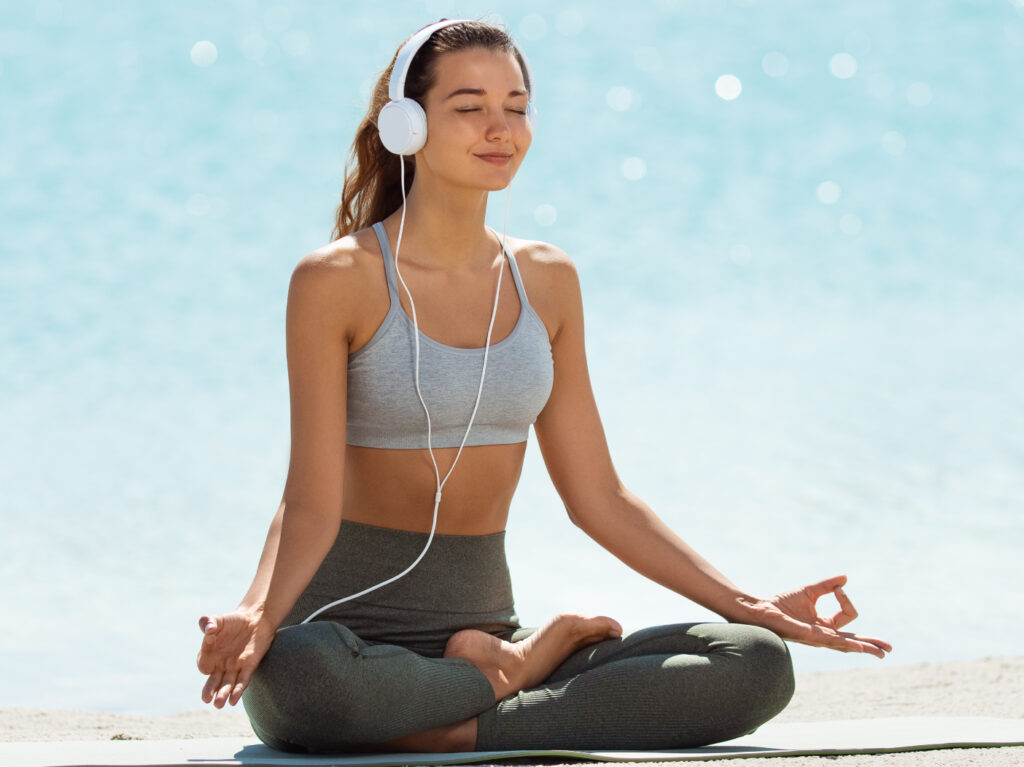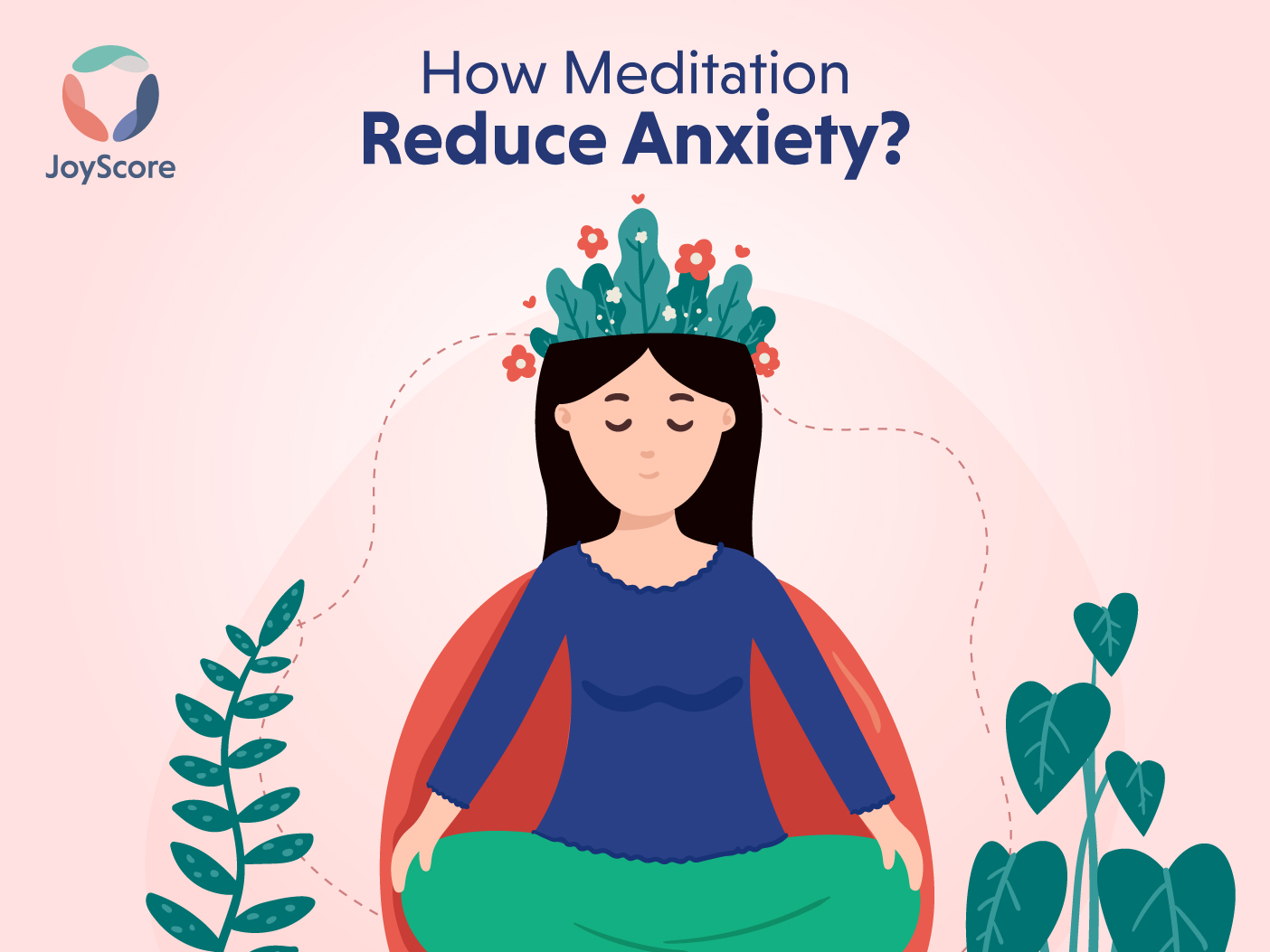According to the Anxiety and Depression Association of America (ADAA), almost 18.1% of the population aged 18 and above (approx 40 million adults) in the US alone suffers from anxiety disorders each year. Not to mention that anxiety disorders are officially the most common mental illness in the US.
This staggering number raises concern among people about the constantly rising cases of mental problems in the US and all over the globe. People often turn to medication and prescribed drugs to ease their restless minds to fight this disorder. However, popping pills might not be best for your body in the long run, according to several studies.
Recently, several studies have shown the power of meditation and mindfulness breathing for reducing anxiety and clinical depression. In this article, we will discuss how meditation reduces anxiety disorder and the benefits of breathing exercises and meditation.

What is meditation?
Before diving into breathing and meditation benefits, it is vital to know what meditation is. Meditation is the systematic process of training your mind to be more poised, focused, and capable of redirecting thoughts from negative to positive. Used by people for generations, meditation is a complementary mind-body medicine that can develop a positive mood and emotions and reduce problems like anxiety and chronic pain.
Meditation reduces anxiety and is even known to cure clinical depression with regular practice. Our ancestors used it to find spiritual wisdom. However, now meditation is becoming more trending because of its psychological benefits. You can learn more about meditation and practice it by downloading the Joyscore app.
How to practice mindful breathing
Irregular breathing can topple the oxygen and carbon dioxide balance in your lungs and lead to anxiety, fatigue, panic attacks, and other physical and emotional agitations. Proper breathing helps reduce anxiety, and many different breathing techniques can help you in immediate and long-term stress reduction. Let’s look at some breathing techniques that can facilitate breathing benefits lower stress levels.

1. Belly Breathing
Belly Breathing is a great technique to reduce stress levels in your body and achieve a more calm and composed mindset. You can do this exercise while sitting down or lying on your back with a pillow under your head and elbows. The procedure is listed below.
- First, Put one hand on your chest and the other hand on your belly.
- Let your stomach relax, and make sure not to force it inward.
- Start breathing through your nose slowly and notice your stomach rise and fall with breathing.
2. 4-7-8 Breathing
The 4-7-8 breathing, also known as the relaxing breath, is another way to calm your anxiety and enjoy breathing benefits—this technique functions as a natural tranquilizer for your nervous system.
“4-7-8” states the number of seconds an individual has to hold their breath after exhaling each time. You can do this exercise both while being seated or lying back. However, starting with the seated position is recommended if you are a beginner.
3. Lion’s Breath
The Lion’s breath breathing technique comes from the Hindu culture. It is also called “Simhasana” in the Sanskrit language and has proven beneficial for anxiety disorders. To put it simply, in this exercise, the person sticks out its tongue and roars like a lion. It is yet another helpful deep breathing technique that can help in relaxing the muscles in your face and jaw, relieve stress, and provide other breathing benefits.
Benefits of meditation for anxiety
Meditation is a century-old, if not more, practice that can provide mental and spiritual enlightenment. And now, this ancient practice is becoming wildly popular because of its benefits. People now practice meditation to ease anxiety or use meditation to release stress. Here are some of the advantages that meditation and breathing hold for anxiety and stress reduction.
1. Meditation reduces anxiety and stress.
People all over the world use meditation to relieve stress and anxiety. Any stress, mental or physical, can increase the levels of cortisol chemicals in your body. These chemicals can negatively impact your body and lead to anxiety and depression.
Many types of research have proven that spending regular, accurate time in meditation benefits the body and decreases these chemical levels. It can also diminish physical health concerns caused by stress such as chronic pain, fatigue, high blood pressure, or insomnia.

2. Provides better self-awareness
Meditation helps to increase your self-awareness. It makes you more present at the moment, allows gratitude, and thankfulness into your lifestyle. While different meditation techniques give different results, all types of meditation elevate your mood, mind, and self-awareness.
This heightened self-awareness leads to an increased capacity to identify and begin to understand your source of anxiety and take necessary steps to overcome them.
3. Better emotional health
The meditation benefits also extend to your emotional health. Several forms of meditation can result in a better self-image and a more positive outlook on life. It calms the mind down, makes us more emotionally stable, and more capable of handling the uncertainties of life.
4. Provides better concentration
One major cause of anxiety is overthinking. When your mind races because of stress, it starts to imagine (primarily negative) scenarios and gives birth to anxiety disorders. However, meditation reduces anxiety and helps you filter out these negative thoughts that lead to an enhanced attention span. In a way, just like lifting weights is a workout for your body, meditation is like a workout for your brain.
5. Improved sleep
Everybody loves sleeping, it is relaxing and refreshing, but sleep plays a much important role in our emotional and physical well-being. Stress and anxiety cause sleep deprivation and insomnia in most cases. As a result, insomnia can cause agitation, tiredness, and even more stress and anxiety.
Meditation helps you achieve deep sleep and prevents insomnia by enabling a more relaxed sleeping process.

Final thoughts
Anxiety is a constantly growing problem, not only in the US but also worldwide. The growing number of cases certainly causes a chill down the spine. However, meditation is a proven and tested way to fight anxiety, stress, and other mental problems. Meditation reduces anxiety and can be nectar for your mind.
We hope that this article helped you and answered your questions. You can also download our Joyscore app for daily meditation mindfulness exercises.



